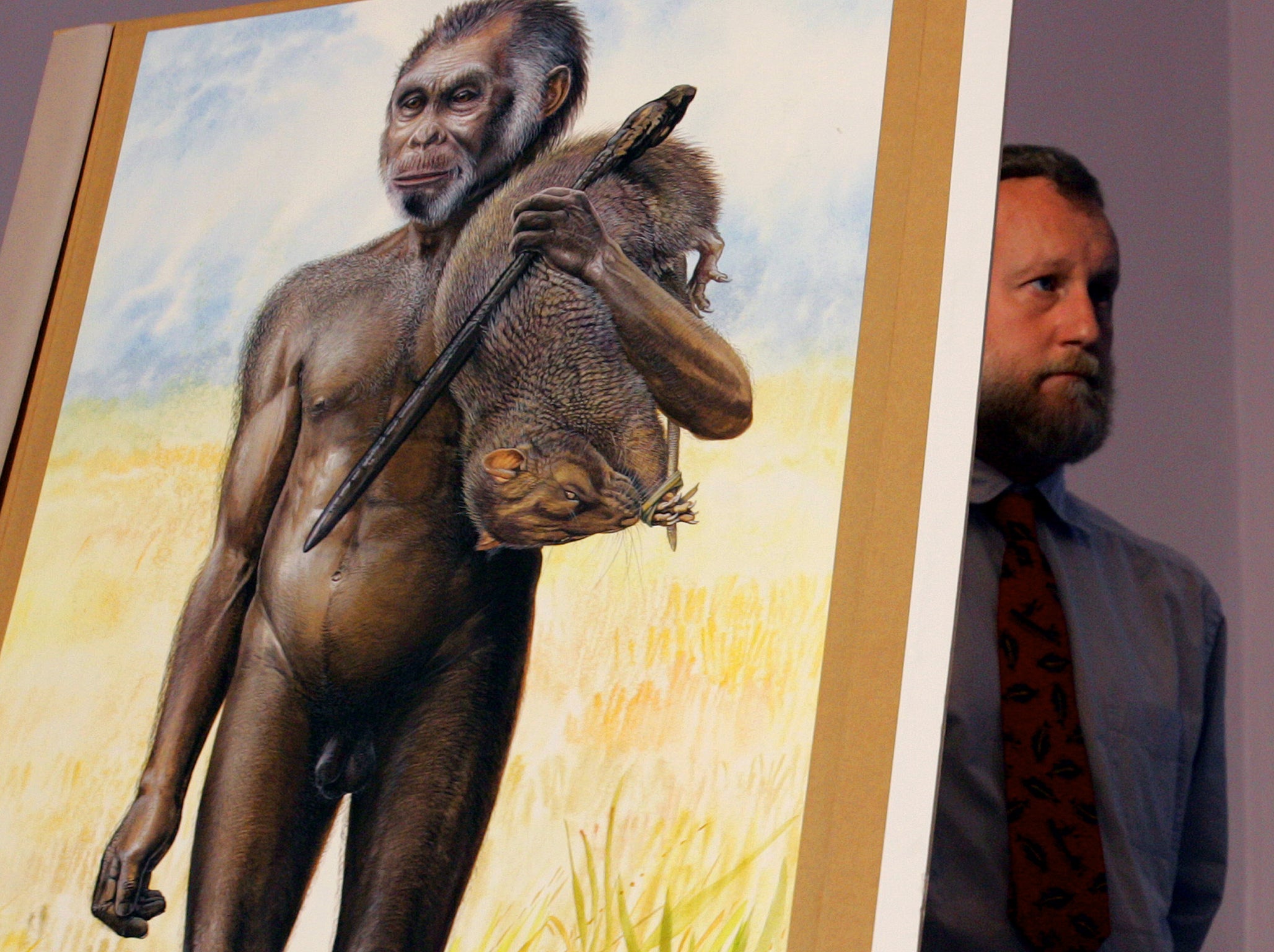Homo florensiensis: 'Hobbits' living on Indonesian island were wiped out far earlier than previously thought
The species appears to have disappeared just as humans arrived nearby — but it’s not clear whether the two species met, or if humans might have played a part in wiping out their shorter neighbours

Your support helps us to tell the story
From reproductive rights to climate change to Big Tech, The Independent is on the ground when the story is developing. Whether it's investigating the financials of Elon Musk's pro-Trump PAC or producing our latest documentary, 'The A Word', which shines a light on the American women fighting for reproductive rights, we know how important it is to parse out the facts from the messaging.
At such a critical moment in US history, we need reporters on the ground. Your donation allows us to keep sending journalists to speak to both sides of the story.
The Independent is trusted by Americans across the entire political spectrum. And unlike many other quality news outlets, we choose not to lock Americans out of our reporting and analysis with paywalls. We believe quality journalism should be available to everyone, paid for by those who can afford it.
Your support makes all the difference.“Hobbits” lived in Indonesia and disappeared thousands of years earlier than we thought, according to new research.
Some had speculated that the small creatures might have gone on for lives — even surviving to the present day. But the species disappeared from their Indonesian island no later than 50,000 years ago, at about the same time that early humans arrived there.
It isn’t clear whether the two species ever met. But scientists say that it is possible Homo sapiens played a role in wiping out the Hobbits, and that the new findings will allow them to concentrate on new research to find out whether that is the case.
"To me, the question is, 'Would the Hobbits have become extinct if humans had never made landfall on Flores?' And the answer is 'no.' We were likely the decisive factor in their demise, but we still need to find hard evidence to back up this hunch," said Geochronologist Bert Roberts of Australia's University of Wollongong.
Numerous animals disappeared on Flores at the same time, said paleoanthropologist Matt Tocheri of Canada's Lakehead University and the Smithsonian Institution's Human Origins Program. These included small elephants, giant marabou storks, vultures and large Komodo dragon lizards.
The new dates were discovered by excavations in the caves where remains of the 3-foot Hobbits were first found.
The hobbits are formally known as Homo floresiensis, reflecting their home on the Indonesian island of Flores. With small, chimp-sized brains, the hobbits had skulls that resembled Homo erectus, which lived in Africa and Asia. But they also had long arms and short legs that harkened back to the much older evolutionary forerunners best known for the skeleton dubbed Lucy.
It's not clear where they fit in the human family tree. They may have descended from taller ancestors who shrank because of their isolation on the island. Some scientists have argued they were diseased modern humans rather than a separate species, but experts called that a minority view and several said the new dates make it less likely.
Professor Richard Roberts, from the University of Wollongong, Australia, who oversaw the analysis used in the new study, said: "We dated charcoal, sediments, flowstones, volcanic ash and even the H. floresiensis bones themselves using the most up-to-date scientific methods available.
"In the last decade, we've vastly improved our understanding of when the deposits accumulated in Liang Bua, and what this means for the age of 'hobbit' bones and stone tools. But whether 'hobbits' encountered modern humans or other groups of humans - such as the 'Denisovans' - dispersing through Southeast Asia remains an open and intriguing question."
Additional reporting by agencies
Subscribe to Independent Premium to bookmark this article
Want to bookmark your favourite articles and stories to read or reference later? Start your Independent Premium subscription today.
Join our commenting forum
Join thought-provoking conversations, follow other Independent readers and see their replies
Comments